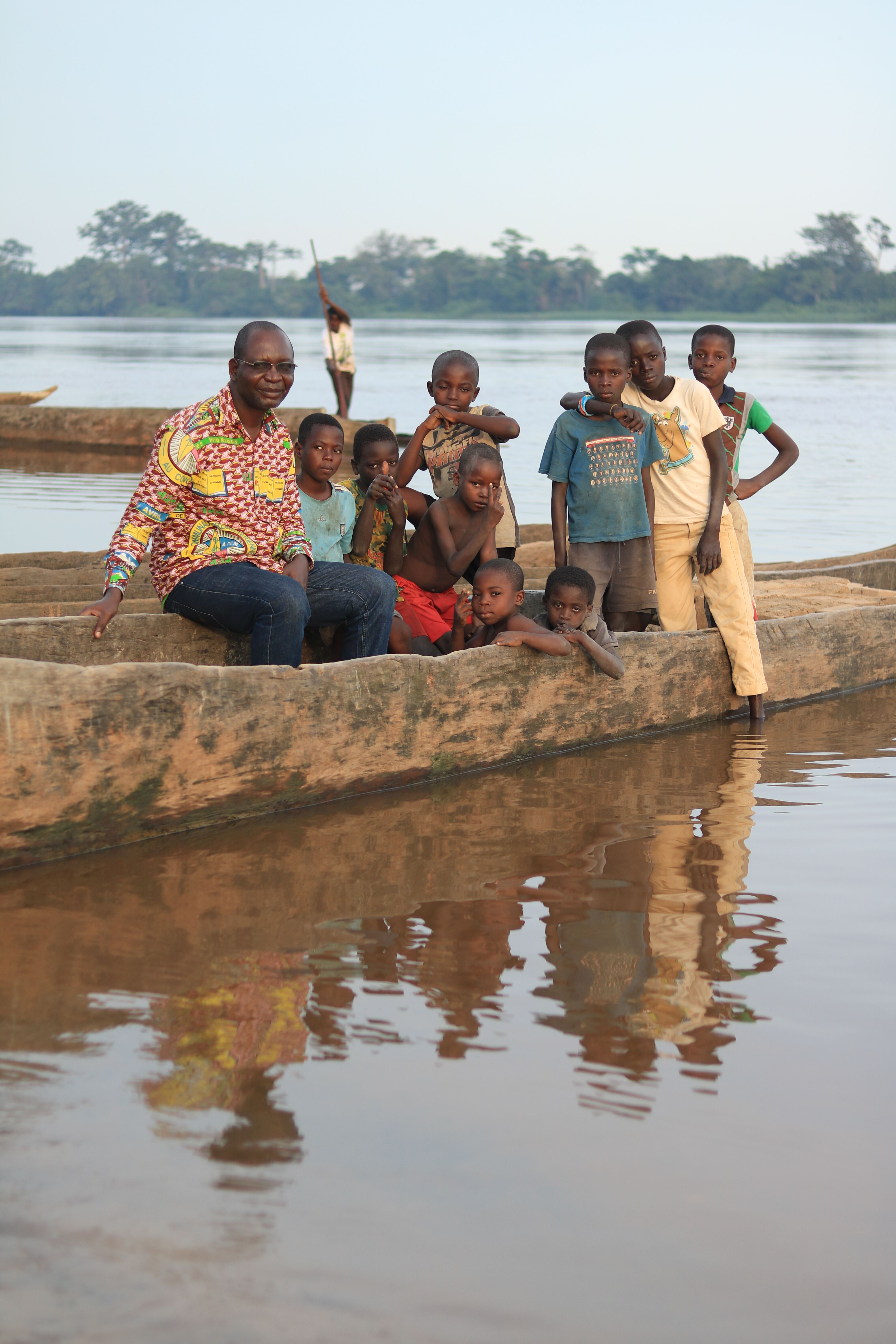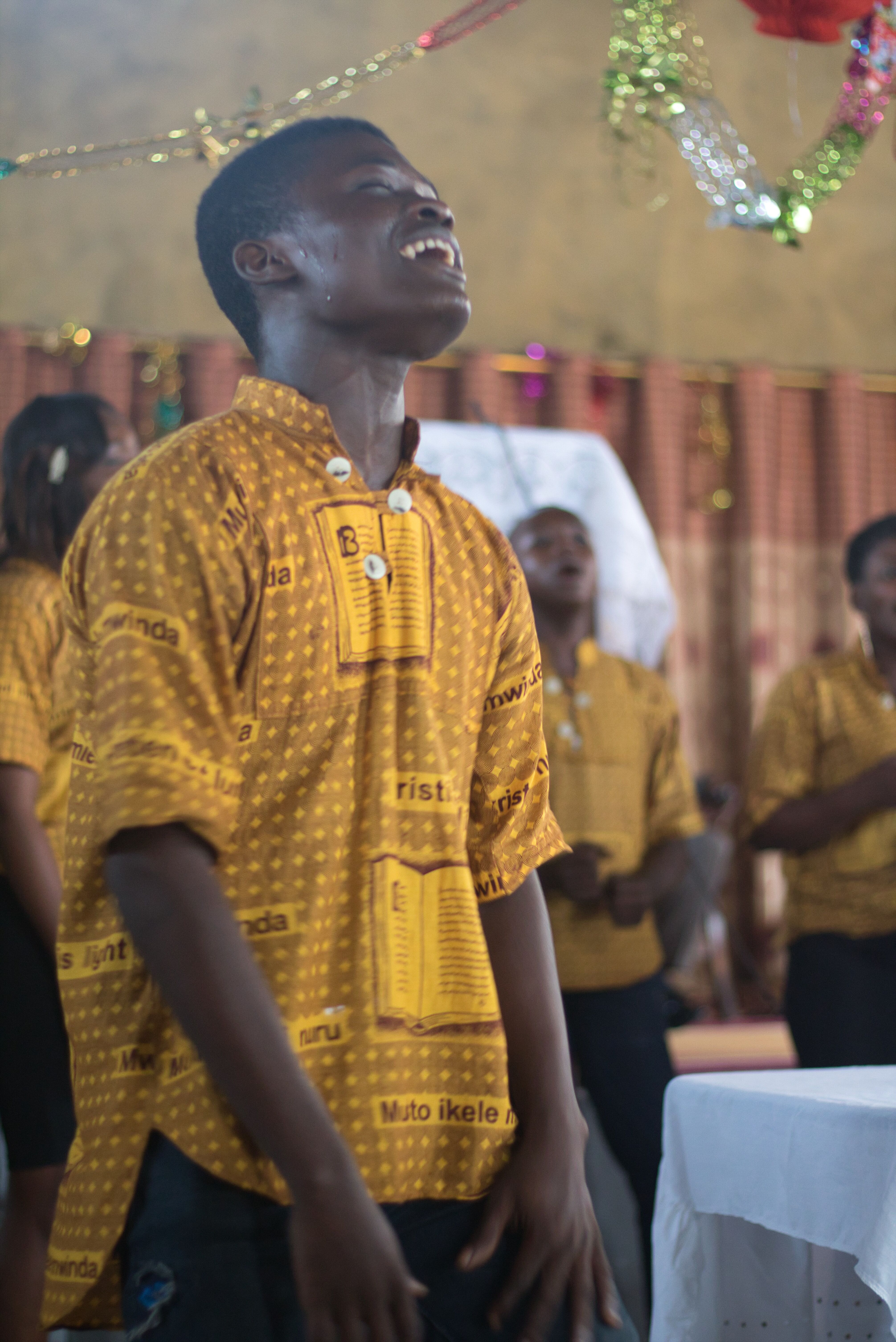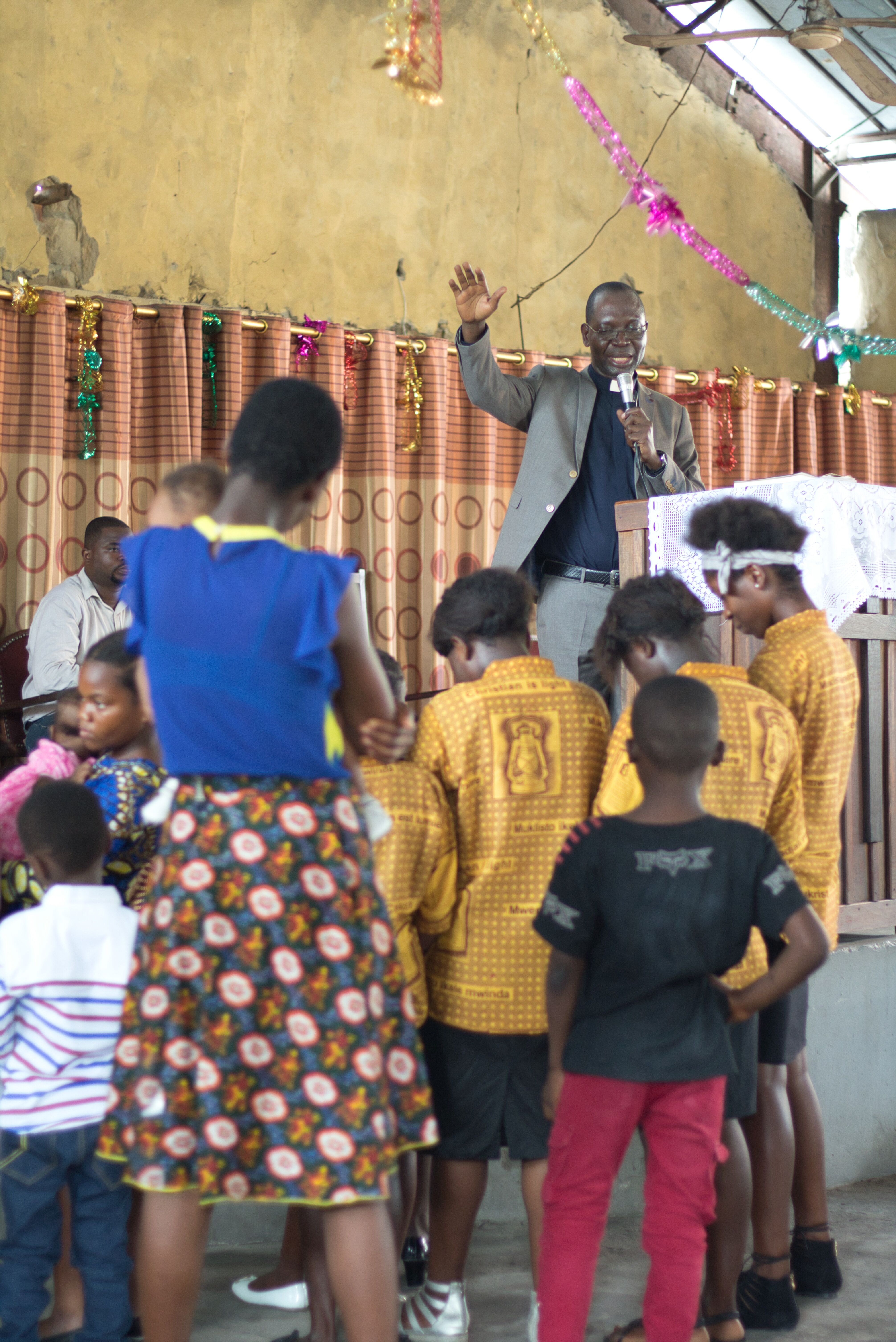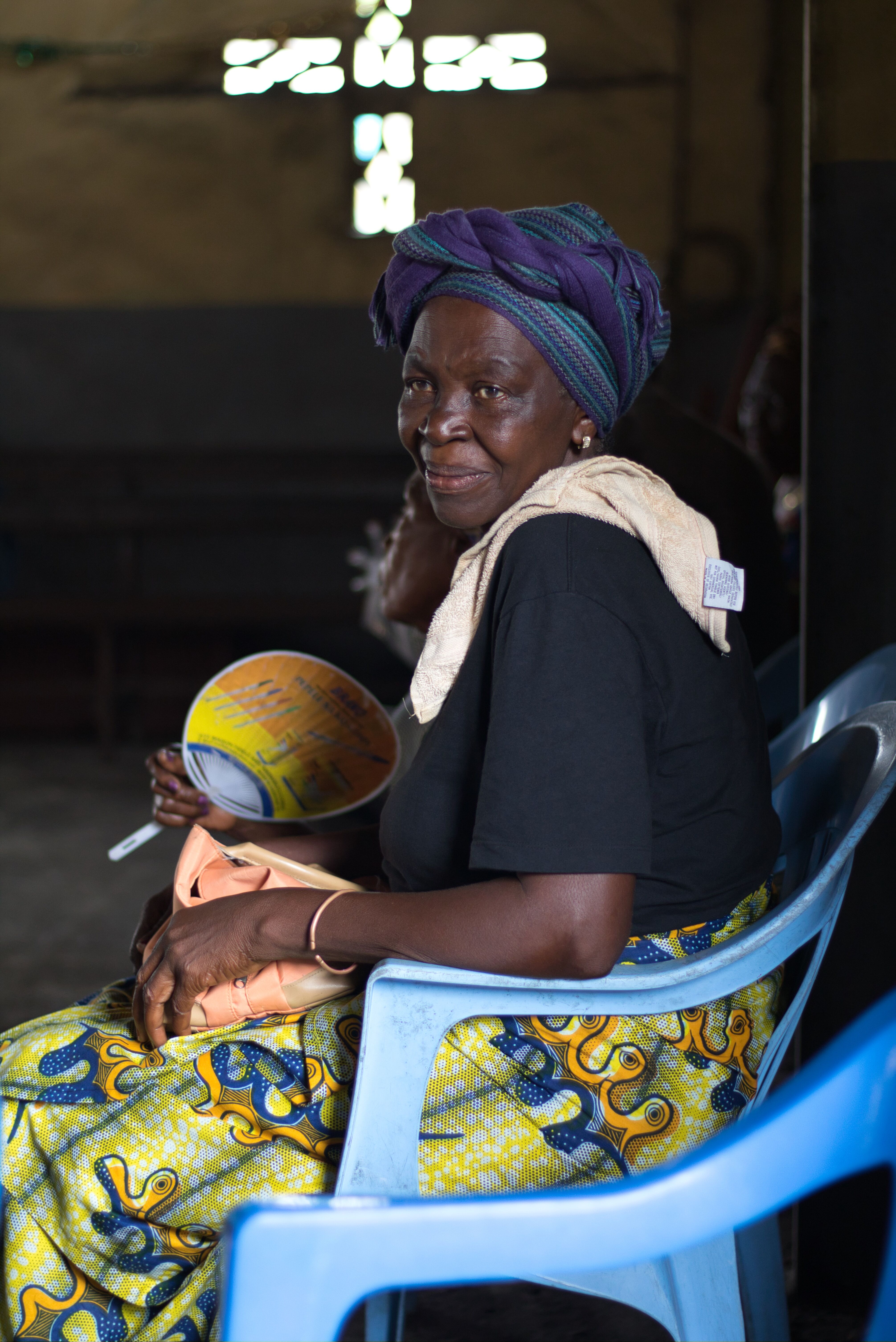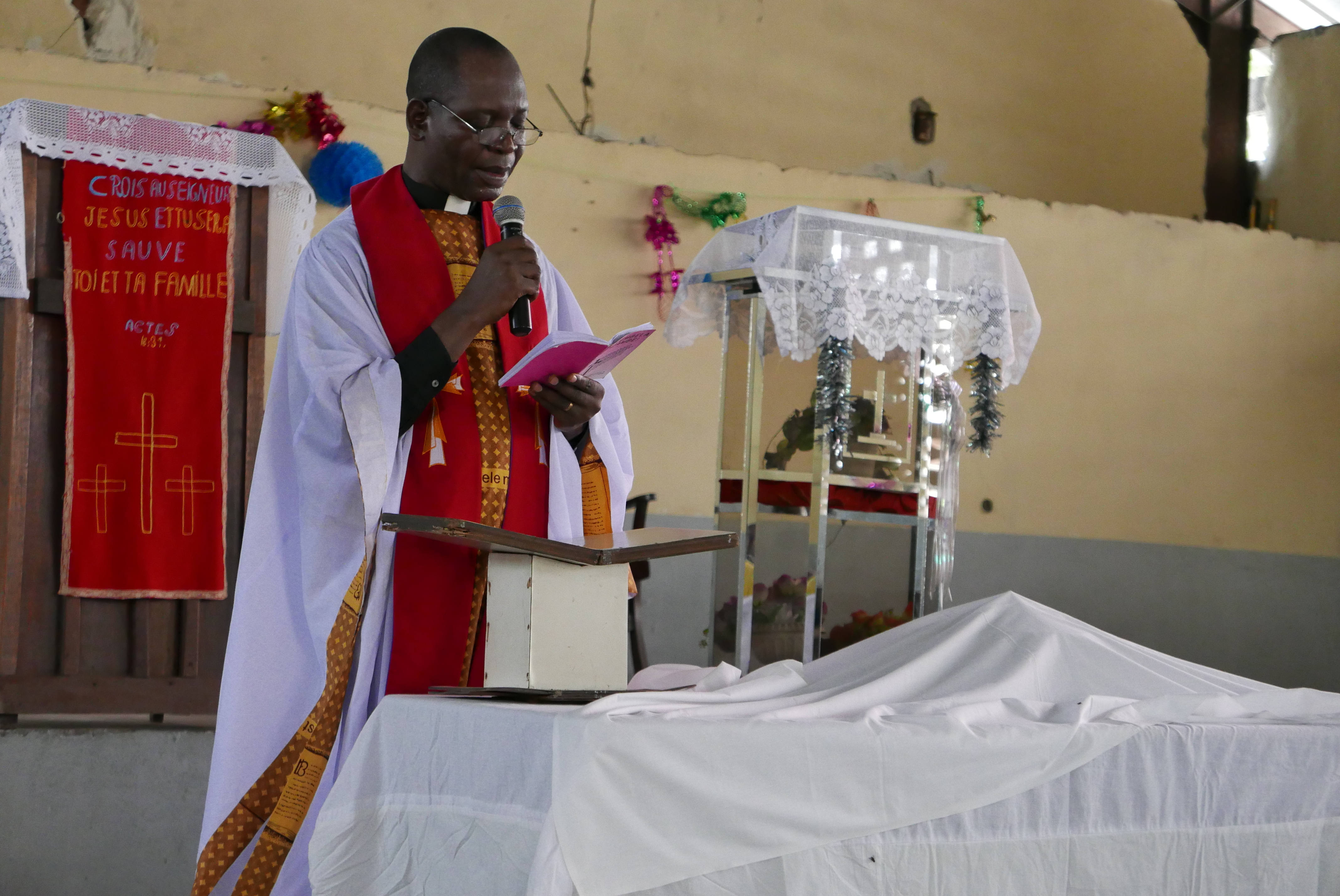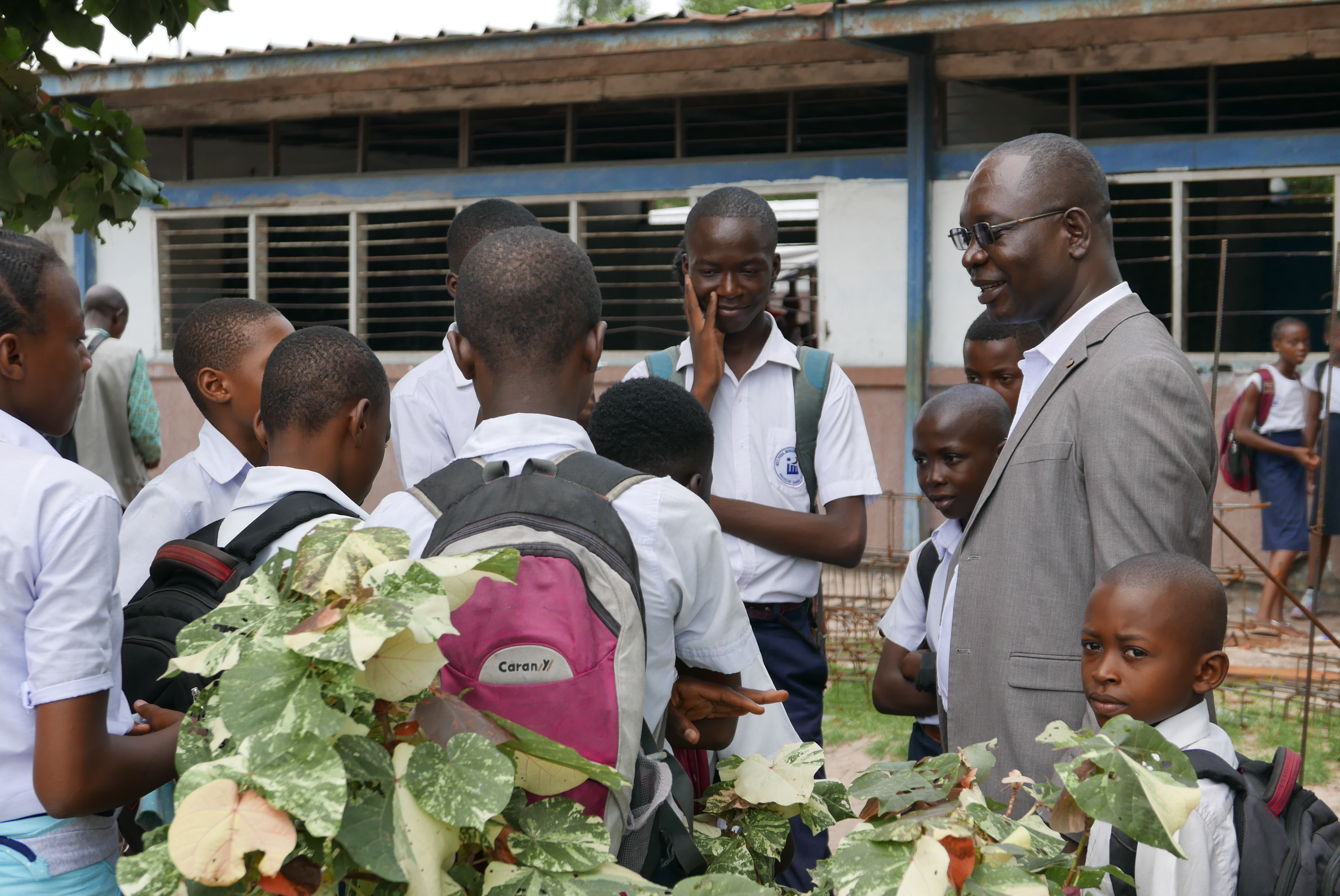A Letter from Christi and Jeff Boyd, serving in Africa
July 2019
Write to Christi Boyd
Write to Jeff Boyd
Individuals: Give online to E200314 for Christi and Jeff Boyd’s sending and support
Congregations: Give to D506075 for Christi and Jeff Boyd’s sending and support
Churches are asked to send donations through your congregation’s normal receiving site (this is usually your presbytery).
Dear friends and family,
“Matthew 25 teaches us a reality that the church has always neglected. We see a Jesus who not only sits at the righthand of his Father in heaven, but a Jesus who is always beside us, who looks at us and needs our response. As parish pastors we’re not just pastoring souls that we must nourish with preaching, but we are pastors of men and women who have needs to be met, who seek encouragement, coaching, guidance towards solutions.”
Sitting in his office, Pastor Isaac shared with me his understanding of what Matthew 25 tells us about being the church. He is a man of quiet and reflective demeanor. He is a pastor. He is a teacher. For two decades he taught English at the Mokengeli Presbyterian high school, but since September 2017 he has been the president and legal representative of the Presbyterian Community of Kinshasa.
The Presbyterian Church (USA) General Assemblies of 2016 and 2018 acted with conviction to the call of Matthew 25:31–46 for all of us to be actively involved in the world around us; to act boldly and compassionately to serve people who are hungry, oppressed, imprisoned or poor; and to focus on building congregational vitality, dismantle structural racism and eradicate systemic poverty.
Fundamental to PC(USA) missiology is the idea of mutuality. Relationships are two-ways, three-ways or more. I asked Pastor Kalonji Isaac to give me his perspective on this passage and on our foci in light of the context where he lives and works — Kinshasa, Democratic Republic of Congo. This is what he shared:
“To forget or ignore that people around us have needs can render our preaching empty talk. One day, people will ask themselves, “Why go to church, why listen to sermons if the church is not interested in my needs, if the church does not notice me, or see the needs around it?” Jesus shows that everyone can do something for another, whether rich or poor. Giving someone something to drink is not just expected of a millionaire, but anyone can respond that way. Maybe not as easy in the big city where we must pay for water, but in our villages we do not need to buy it, yet there may be someone near you who needs this water. People can go visit someone who is sick or in prison, who only needs someone at their side to reassure them that they are not alone and can still rely on the solidarity of other people. Nothing but that.
“So, a vibrant church must not only be a church that preaches the gospel for the salvation of the soul, but a church that is interested in the physical and material needs, the needs of the men and women who have just been listening to the Word of God. At times, that’s what is missing. There are situations where the pastor is not interested in his “sheep.” There is also the reality that brothers and sisters of the same church only see each other on Sundays in church. They do not even know where others live, or where they work. Such indifference cannot promote the vitality of the church.
“We have a denomination here called the Neo-Apostolic Church. When they first started working in the Kasai region, they had plenty of time to preach the gospel, but the church had a social policy. If a member is ill, members of the congregation should at all times be around. They visit the person in the hospital, they contribute to pay the costs, all just to bring their sister or brother home. When a member dies, they help pay for the coffin. And that denomination grew, surpassing the already established churches. So, defining a church social policy can also contribute to the vitality of the church. Not that this is the only example, but it is known by many people as a reality that was the basis for the unimaginable growth of this church in the Kasai.“In the name of Christian ethics, we have the obligation to respect the dignity of all human beings as created in the image and likeness of God. In our country, the law requires free primary school education for all children. But curiously, every day there are children who are chased out of school because they have not paid the fees. It’s not the children, but the parents who cannot pay the fees because they do not have the means to do it. Perhaps because they do not have a job, perhaps because they have no livable salary.
“When you look at these children who are chased out of school day after day, they’re not happy. They regret it. They ask themselves why they are outside while others stay in the classroom studying. They wonder how they differ from those in class. They speak the same language, they have the same skin color, but they feel totally different from others. Rejected. Marginalized. Excluded simply because there is lack of money, lack of work for their parents. And they’re asking themselves what they did to be treated unfairly and be denied their dignity.
“We ask that justice surround these children, that the government really insist on applying the law. That we give free education to all children because it is their right. It’s their right, education for all. Otherwise, those children who think society is unfair, they will not be grateful to this society. And their frustration leads to violence in society. In this way, we risk murder and rape by these children who grow up discontented. They lose respect for their leaders, they lose love for their homeland. Instead of building up they will start to destroy, because they know that the rulers are unfair, we as parents are unfair, even as teachers we are unfair.
“You cannot talk about the student without talking about the teacher. A teacher who comes to teach children but leaves his own children at home because he has no money to pay for their schooling. How can he teach correctly? And for what kind of a salary is he coming to teach? Did he eat in the morning before coming to teach? Has he had time to prepare the lessons at home? No, because the salary is insufficient. When the teacher comes to school hungry, and the student is also hungry, what results can we expect, what quality of teaching? One teaches for what future? These are urgent matters that are before the new leaders elected to run the country. But they can also draw the attention of all people of goodwill in this world to associate with the cries of children in the DRC. The cry for social justice.”
Pastor Isaac thanks me for listening, but it is I who am indebted to him. We, the Presbyterian Church (U.S.A.), are blessed to have global partners who share from their context and help us to gain perspective on scriptures in this complex world. As a father, teacher, pastor and denomination leader operating 350 primary and secondary schools, Pastor Isaac sees the education work from multiple perspectives, but particularly the conflicting challenges of providing basic education to every child without regard to ability to pay and the compulsion to ensure teachers have a living wage. Christi and I are grateful for the leadership of Pastor Isaac and his colleagues who are struggling to lift the Presbyterian Community of Kinshasa out of some deep troubles. They are working to regain the confidence of its own members that the church lost over the past decades, and to re-establish trust of partners in the U.S. Pastor Isaac is one of the invited guests to the Congo Mission Network hosted by First Presbyterian Church in Knoxville, Tennessee from October 17-19. If he is granted a U.S. visa, then many churches will be blessed to have him visit and share in person how the church in the Congo is trying to live faithfully to God’s Word and Will. That can be encouraging and inspiring for each of us as we try to do the same.
As Christi and I enter our 30th year of service as mission co-workers with the PC(USA), we are grateful for the support of many of you. We welcome opportunities to share our experiences in God’s mission. That can be through face-to-face visits, conversations over the phone or Skype, or even remote audio/visual presentations to groups. Each year at least one of us visits the U.S., and we carve out time to visit churches. Feel free to contact us if you would like to arrange for us to visit you. We’ll next be in the U.S. from September 28 to mid-December 2019. Our schedule, especially Sundays, is filling up, but please let us know if you would like us to visit.
Peace be with you!
Jeff (and Christi)
![]() You may freely reuse and distribute this article in its entirety for non-commercial purposes in any medium. Please include author attribution, photography credits, and a link to the original article. This work is licensed under a Creative Commons Attribution-NonCommercial-NoDeratives 4.0 International License.
You may freely reuse and distribute this article in its entirety for non-commercial purposes in any medium. Please include author attribution, photography credits, and a link to the original article. This work is licensed under a Creative Commons Attribution-NonCommercial-NoDeratives 4.0 International License.
Tags: congregational vitality, DRC, education, equality, ia, itineration, Kinshasa, Matthew 25, mutuality, partnership, Pastor Isaac, poverty, social justice
Tags: Jeff and Christi Boyd
